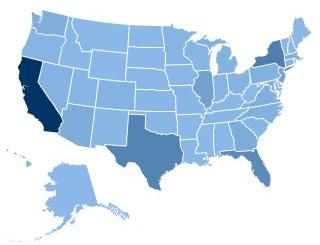Published on Fri, Mar 25, 2011
Some of the toughest bills in the nation aimed at illegal immigrants are making their way through legislatures in the South.
Proposed legislation in Alabama, Georgia and South Carolina, where Republicans control the legislatures and the governors’ mansions, have moved further than similar proposals in many other states, where concerns about the legality and financial impact of aggressive immigration legislation have stopped lawmakers.
Dozens of immigration-related bills showed up early in legislative sessions across the South. Some were aimed at keeping illegal immigrants from college or from marrying American citizens. Most died quickly, but three proposals designed to give police broader powers to identify and report illegal immigrants are moving forward.
The conservative political landscape, and a relatively recent and large addition of Latinos, both new immigrants and legal residents from other states, have contributed to the batch of legislation, say supporters and opponents of the proposed laws.
“The South has become a new gateway for immigrants,” said Wendy Sefsaf of the Immigration Policy Center, a research organization. “People see the culture shift, and they are a little bit freaked out.”
The Hispanic population in Alabama, for example, has increased by 144 percent since 2000, according to new census figures. In Mississippi, the numbers jumped by 106 percent, and in North Carolina by 111 percent. Over all, however, numbers remain small. Only about 4 percent of the population in Alabama is Hispanic. In South Carolina, the figure is 5 percent.
But Georgia has the seventh-largest population of illegal immigrants in the country, according to a report by the Pew Hispanic Center. There, a version of a law pioneered in Arizona would allow local police officers to inquire about the immigration status of people they suspect of committing crimes, including traffic violations.Read more...
Published in the New York Times



